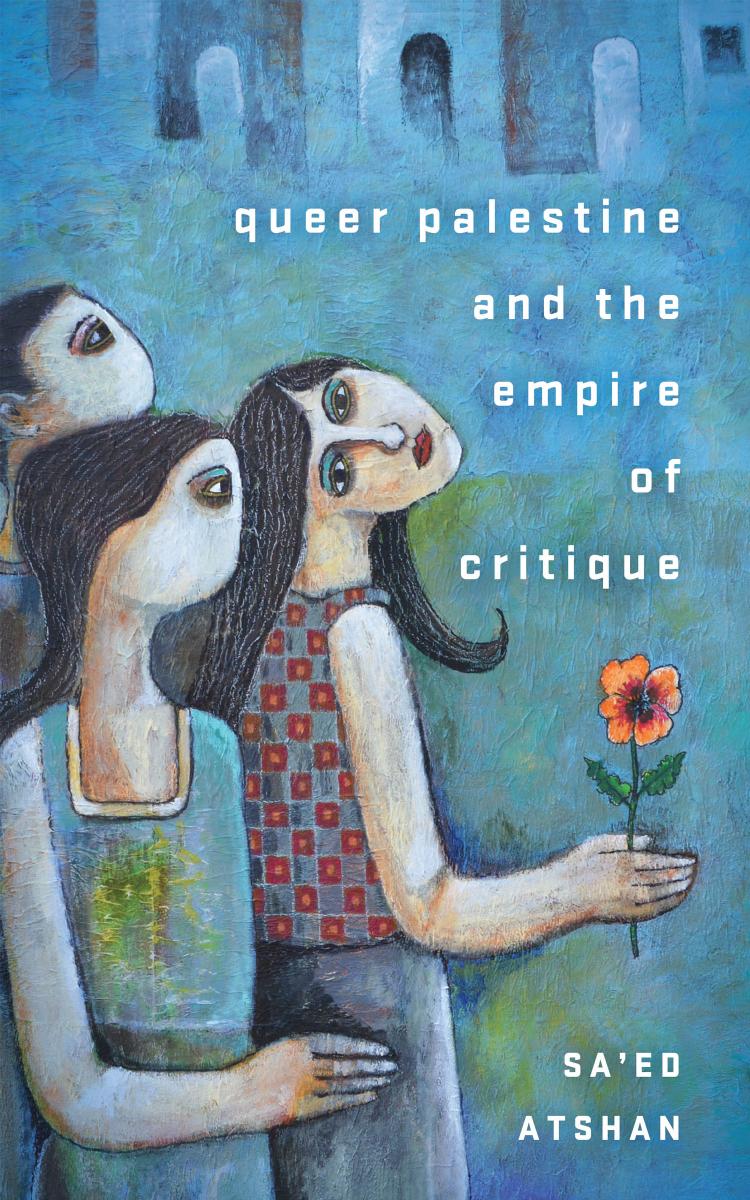Queer Palestine and the Empire of Critique by Sa'ed Atshan

Author:Sa'ed Atshan
Language: eng
Format: epub, pdf
Publisher: Stanford University Press
Published: 2020-06-15T00:00:00+00:00
4
Media, Film, and the Politics of Representation
W. E. B. DU BOIS ARGUED that the Black American experience under postemancipation white supremacy generated a âdouble consciousness,â a bifurcated sense of self arising âfrom the double life every American Negro must live, as a Negro and as an American.â1 The experience of an all-encompassing racial hostility alongside official declarations of civic equality and democratic freedom wrought painful and persistent psychological consequences. Double consciousness, in Du Boisâs poetic expression, âis a peculiar sensation, the sense of always looking at oneâs self through the eyes of others, of measuring oneâs soul by the tape of a world that looks on in amused contempt and pity.â2 The social conditions that subject Black Americans to oppressive standards of self-assessment are familiar to the queer Palestinian living as a racialized subject under Israeli apartheid. Queer Palestinians must endure both physical and psychic violence as Palestinian victims of Zionism as well as the conflicted affections and loyalties caused by a Palestinian nationalist project that reifies homophobia. Their sense of self is consequently shaped by the persistent gaze of ethnoheteronormativity. Although that conflicted selfhood manifests in different ways, queer Palestinian double consciousness underscores the ambivalence seen in race relations, competing nationalisms, religious struggles, and conflicts over sexuality among other forms of contested consciousness that exist at the individual and group levels.
Du Boisâs fiction and autobiographical writings aimed to capture the lived experience of Black double consciousness. Film has served a similar purpose for queer Palestinians; in this domain they can grapple with and represent their own experiences of split consciousness. Just as there is no singular queer Palestinian consciousness, no single representation can capture the wide range of subjectivities that queer Palestinians internally and externally inhabit. Only by highlighting a variety of queer Palestinian voices can films and news outlets come closer over time to accurately representing the ambivalence, love, pain, and individual and collective experiences that characterize queer Palestinian life.
This chapter examines the relationship between the global queer Palestinian solidarity movement and representations of queer Palestinians in film and journalism. Significant mistrust of the global mainstream media has arisen among movement leaders. Activists concerned with the politics of representation have demanded that media discourse on Queer Palestine reinforce a radical purist viewpoint. I recognize the difference between journalistic and cinematic representation, and thus the first part of this chapter is devoted to the former and the second to the latter. It opens with a description of how the mainstream Western press tends to prioritize the most sensational stories about queer Palestinians. The media occasionally features more nuanced representation, but I nonetheless underscore movement leadersâ enduring mistrust of the way the news media narrates queer Palestinian experiences and subjectivities. The second half of the chapter outlines the movementâs critique of pinkwashing films produced by Israelis and internationals and the movementâs attendant calls to boycott those films. It is important to note that what constitutes a pinkwashing film is contentious. This chapter delineates examples of cinematic tropes that clearly reinforce pinkwashing and analyzes films that feature queer love between Israelis and Palestinians.
Download
Queer Palestine and the Empire of Critique by Sa'ed Atshan.pdf
This site does not store any files on its server. We only index and link to content provided by other sites. Please contact the content providers to delete copyright contents if any and email us, we'll remove relevant links or contents immediately.
| Bahrain | Egypt |
| Iran | Iraq |
| Israel & Palestine | Jordan |
| Kuwait | Lebanon |
| Oman | Qatar |
| Saudi Arabia | Syria |
| Turkey | United Arab Emirates |
| Yemen |
Empire of the Sikhs by Patwant Singh(23064)
The Wind in My Hair by Masih Alinejad(5084)
Rise and Kill First by Ronen Bergman(4766)
The Templars by Dan Jones(4676)
The Rape of Nanking by Iris Chang(4193)
12 Strong by Doug Stanton(3541)
Blood and Sand by Alex Von Tunzelmann(3184)
Babylon's Ark by Lawrence Anthony(2666)
The History of Jihad: From Muhammad to ISIS by Spencer Robert(2614)
No Room for Small Dreams by Shimon Peres(2355)
The Turkish Psychedelic Explosion by Daniel Spicer(2349)
Inside the Middle East by Avi Melamed(2347)
Gideon's Spies: The Secret History of the Mossad by Gordon Thomas(2329)
Arabs by Eugene Rogan(2291)
The First Muslim The Story of Muhammad by Lesley Hazleton(2257)
Come, Tell Me How You Live by Mallowan Agatha Christie(2244)
Bus on Jaffa Road by Mike Kelly(2144)
1453 by Roger Crowley(2018)
Kabul 1841-42: Battle Story by Edmund Yorke(2014)
